British Columbia, Canada —(Map)
Protesters in Canada have been blocking rail lines for over a week in an attempt to stop the Coastal GasLink pipeline. The costs of the protests are growing, with no signs that the problem will be resolved soon.
The Coastal GasLink pipeline is a 416-mile (670-kilometer) natural gas pipeline, designed to cross British Columbia, running from Dawson Creek to Kitimat. Plans call for the $4.68 billion pipeline to cross land belonging to the Wet’suwet’en people, who don’t want the pipeline.
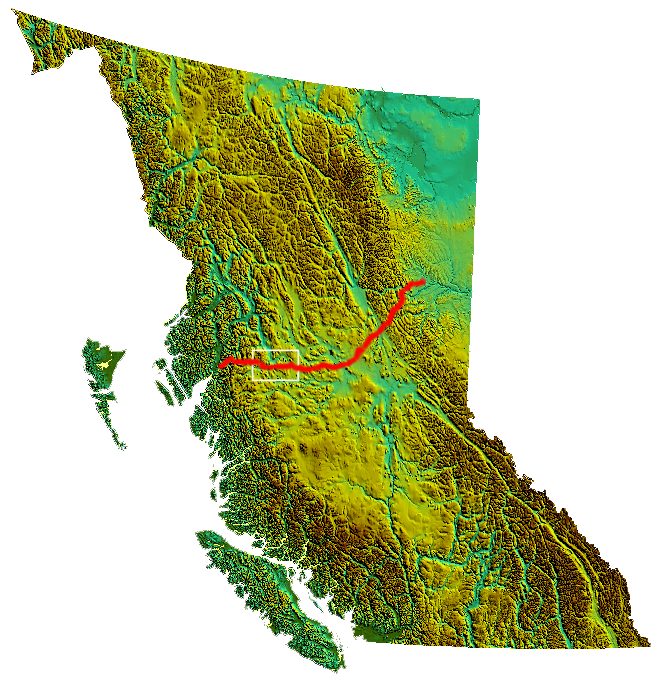
(Source: Alaney2k [CC0], via Wikimedia Commons.)
The Wet’suwet’en people are indigenous people, whose families lived in Canada long before Europeans arrived. In Canada, tribes of indigenous people are usually known as First Nations.
For months, the Wet’suwet’en people have been stopping the building of the pipeline on their land by blocking workers from entering construction sites. In December, a court ruled that the Wet’suwet’en must stop blocking the project. In late January, police were told to begin arresting the protesters.
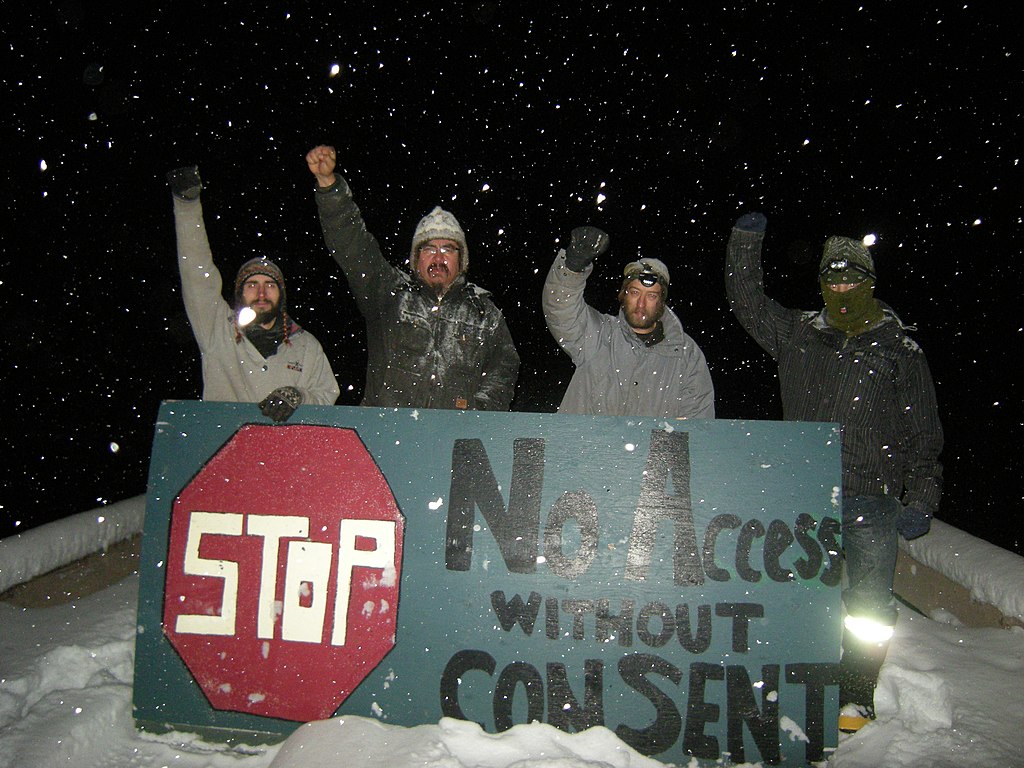
(Source: Unist'ot'en Camp [CC BY], via Wikimedia Commons.)
Na’Mok, a Wet’suwet’en leader, told NPR, “They came in with armed forces to remove peaceful people that are doing the right thing at the right time for the right reasons. We’re protecting the land.”
Twenty-one people were arrested. Those arrests triggered the larger protests which are now blocking the rail lines. People of the Mowhawk First Nation in Ontario began blocking the tracks to support the Wet’suwet’en people. Protests have also taken place in at least 10 other areas in Canada.
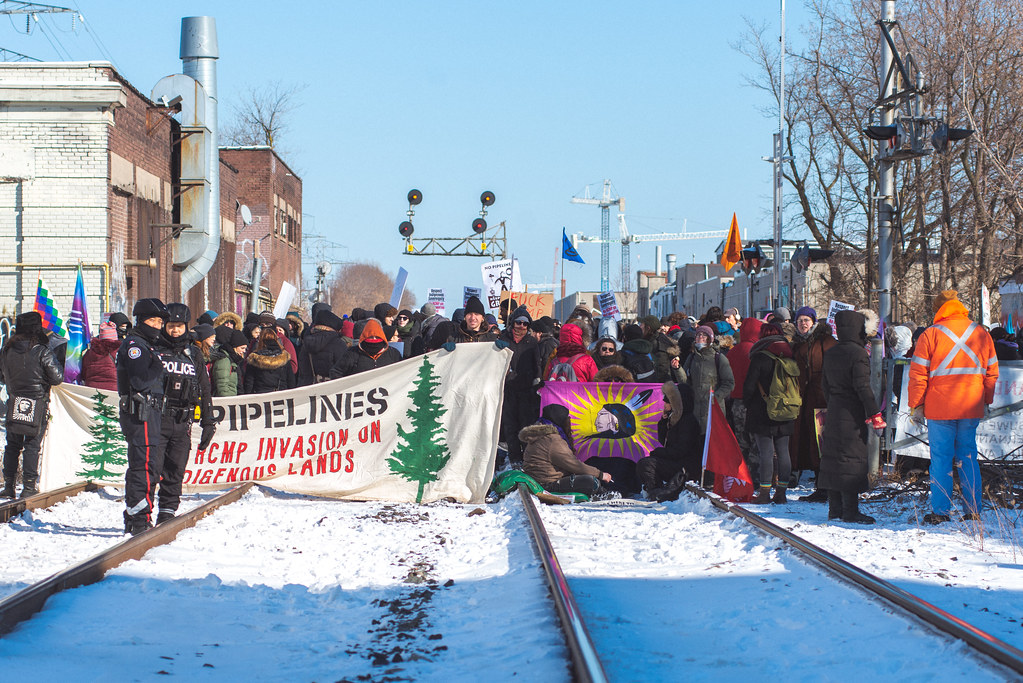
(Source: Jason Hargrove, via Flickr.com.)
Groups which work to protect the environment are also supporting the blockade. Environmental groups believe that because of the climate crisis, it doesn’t make sense for Canada to focus on fossil fuels like natural gas instead of renewable energy.
The pipeline is being built by TC (TransCanada) Energy, which operates around 57,539 miles (92,600 kilometers) of pipeline in Canada, the US, and Mexico. TC Energy is also behind the Keystone XL oil pipeline, which has triggered similar protests among indigenous people and environmental groups in the US.
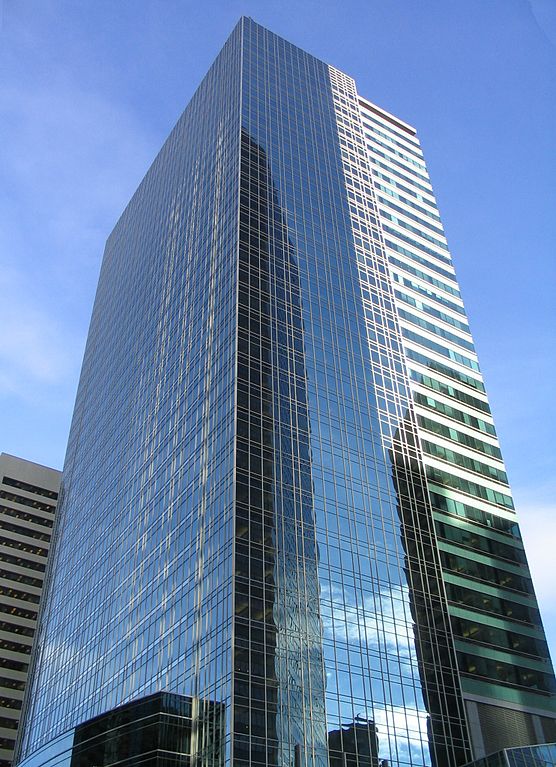
(Source: Surrealplaces [CC BY-SA], via Wikimedia Commons.)
The blocked train lines have forced Canadian National Railways to close all routes in Eastern Canada. The closing also affects the Via Rail train service.
The costs of the blockade are rising. Tens of thousands of passengers are unable to travel by train and the blockade is stopping important shipments from farmers. The supply of other items usually moved by train will also be limited, including propane, a gas used for heating and cooking.
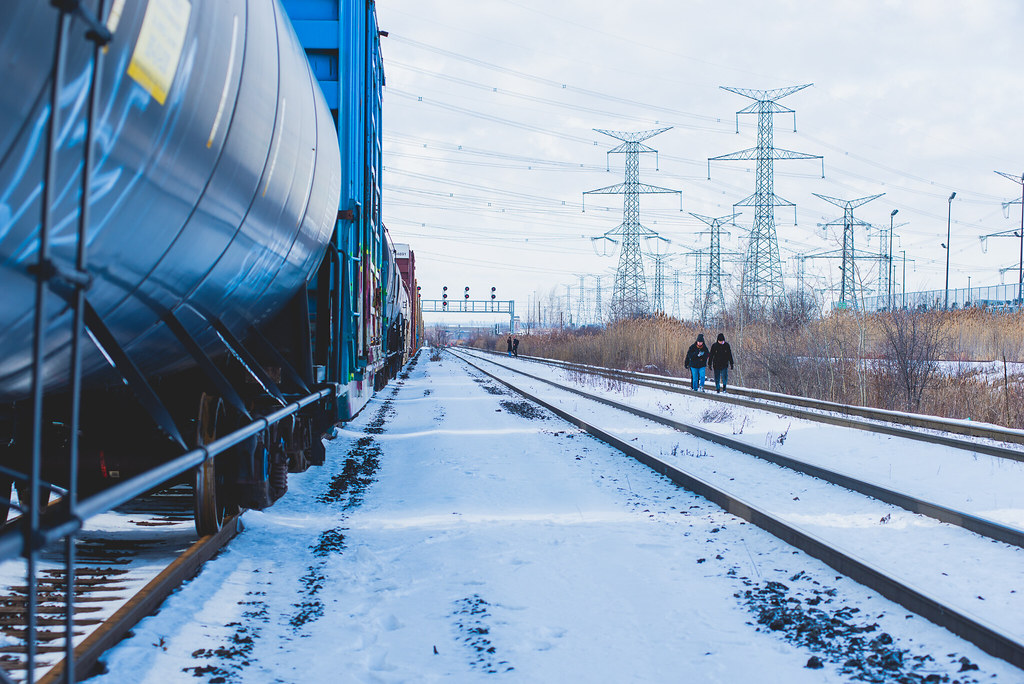
(Source: Jason Hargrove, via Flickr.com.)
The rail blockades have led to at least 47 arrests, but local police in British Columbia and Ontario have been careful in dealing with the protesters. They would prefer to see the problem solved by the federal (national) police.
Marc Miller, leader for Indigenous Services for Canada, met with Mohawk leaders in Ontario on Saturday. Some progress was made during the talks, but he said, “There’s a lot more work to be done.”

(Source: MSC / MCI [CC BY 3.0 DE], via Wikimedia Commons .)
The protests have put more pressure on Prime Minister Justin Trudeau, who has talked a lot about supporting the rights of First Nations. Though he has said that rapid action is needed on the climate crisis, Mr. Trudeau supports the pipeline.
😕
This map has not been loaded because of your cookie choices. To view the content, you can accept 'Non-necessary' cookies.
